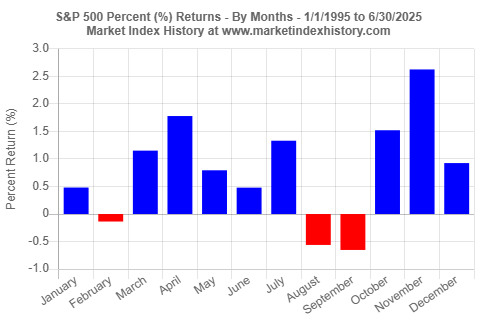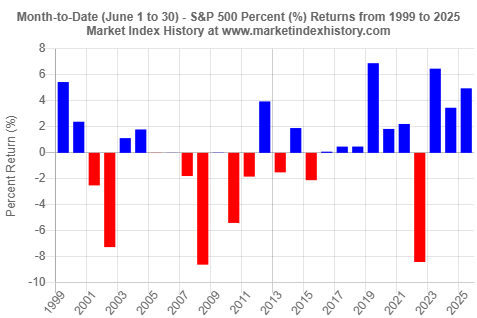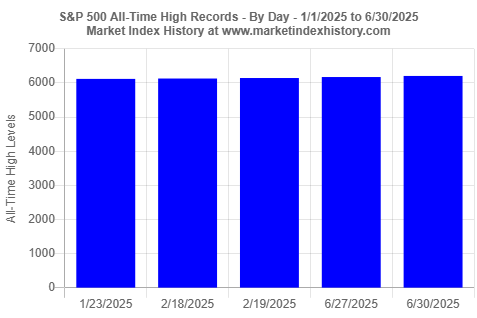As we closed the month of June, we used our publicly available analysis tools to place the performance of the S&P 500 index within a historical context of market performance. In particular, we wished to better understand how S&P 500 index performance in June 2025 compared to performance in June of previous years.
We first examined the historical performance of the S&P 500 index for the month of June. Historically and on average, the S&P 500 index has shown positive returns in June. Figure 1 shows average monthly (January to December) returns from January 1995 to June 2025. Based on this 31-year dataset, the S&P 500 has exhibited an average return of +0.48% in June.
To delve deeper into the analysis shown in Figure 1 with a focus on the month of June, we examined the S&P 500 index performance for every June from 1999 to 2025 (Figure 2). In June 2025, the S&P 500 index had a gain of 4.96%. As shown in Figure 2, this is the fourth best June performance since June 1999. While not shown in this figure, the next highest June 2025 performance goes back to June 1955 (see Performance-to-Date in Market History).
Remarkably, a strong market rally toward the end of the month led to two (2) new all-time high records for the S&P 500 index (Figure 3). One was on 6/27/2025 (6,173.07) and the other was on 6/30/2025 (6,204.95). Therefore, of the total of five (5) new all-time high records in 2025, two (2) were set on consecutive market days at end of June 2025.
Summary
Following a very strong performance in May 2025 (+6.15%), June 2025 was another very good month for the S&P 500 index. The S&P 500 index gained 4.96%. Strong market rally toward the end of the month led to two new all-time high records for the S&P 500 index on 6/27/2025 (6,173.07) and 6/30/2025 (6,204.95). As of the end of June 2025, year-to-date return for the S&P 500 index is +5.50%.
To gain additional historical insights about market index performance, use any one of our Market Index Analysis tools. We use these analysis tools ourselves to gain insights into market performance and to highlight a variety of interesting observations in our historical insights articles.














